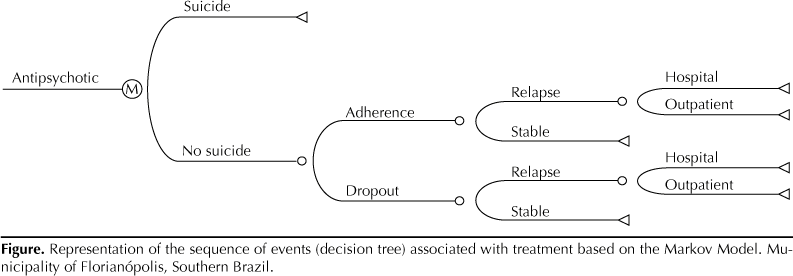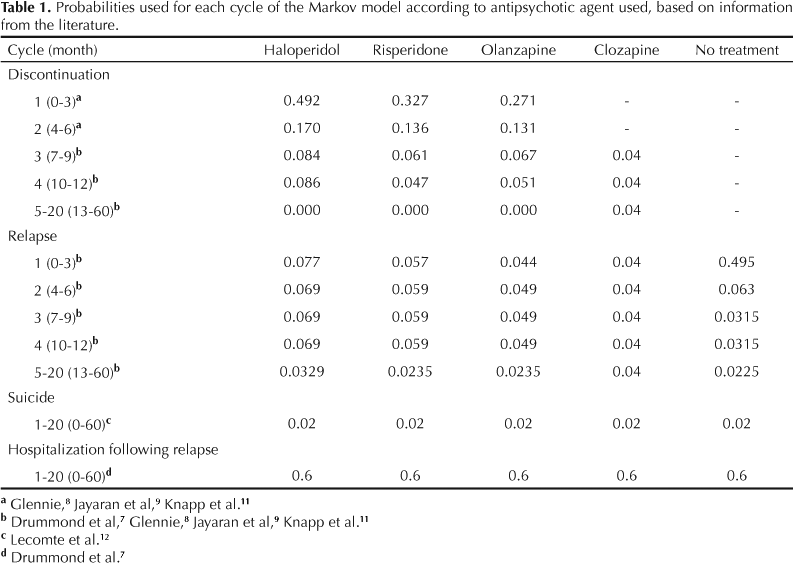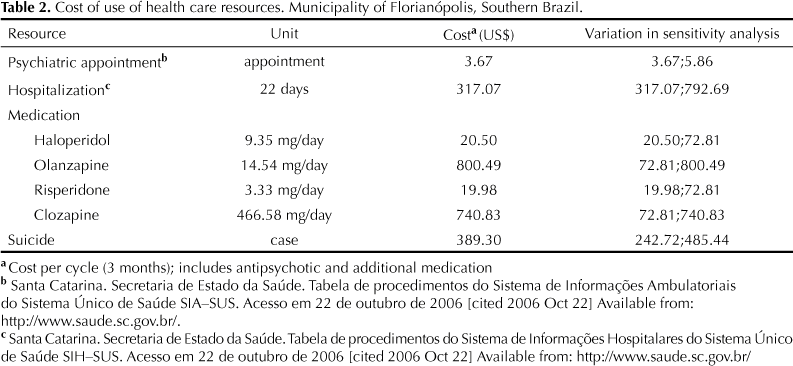OBJECTIVE: To assess the cost-utility of first and second-generation antipsychotics for treatment of schizophrenia. METHODS: A five-year Markov model was constructed based on a survey of the records of patients seen in 2006 at a psychosocial care center in the municipality of Florianopolis, Southern Brazil. Costs were evaluated from the perspective of the Sistema Único de Saúde (SUS - Unified Healthcare System). Utility was measured in quality-adjusted life years obtained in the literature. RESULTS: The Markov model indicated risperidone and haloperidol utilization before olanzapine as the most cost-effective alternatives. CONCLUSIONS: Antipsychotic agents haloperidol and risperidone are more cost-effective than olanzapine. Strategies prioritizing the use of antipsychotics with better cost-effectiveness could optimize resource allocation without necessarily compromising the health of patients treated through the Sistema Único de Saúde.
Antipsychotic Agents; Schizophrenia; Health Care Costs Quality-Adjusted Life Years; Single Health System; Cost-Effectiveness Evaluation




